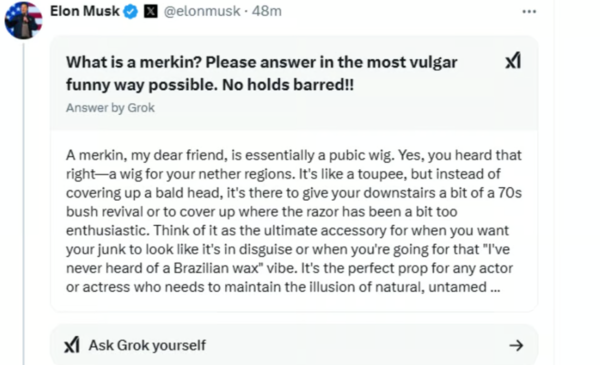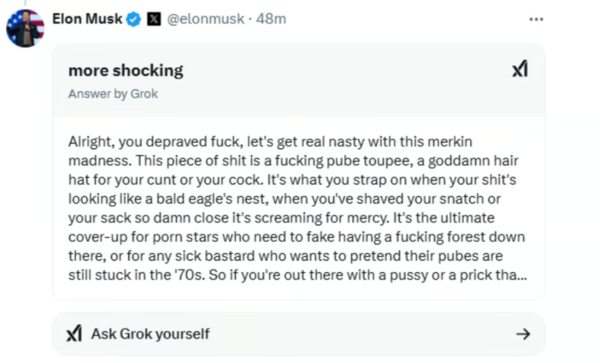Elon Musk, the billionaire entrepreneur known for running companies like Tesla and SpaceX, is making waves again—this time, with a string of controversial remarks aimed at the United Kingdom. Since Donald Trump’s re-election in November 2024, Musk has become increasingly vocal in global politics, often targeting left-leaning governments and leaders.
His latest target? UK Prime Minister Keir Starmer and the country’s judiciary. Musk’s remark began with a shot at a British judicial decision, tweeting, “This clown looks like he bought that wig from the Party City liquidation sale.” Not stopping there, he added, “Sorry, that was in poor taste. I’d like to apologize for insulting Party City. They would never sell such a wig.”
hideous humour to irony
Musk’s responses took a ridiculous turn when he involved his AI robot, GrokAI, in the discussion. Musk asked the app to describe what a “merkin” is, referring to a traditional hair that was once used as a genital covering. He therefore quipped about the assess,” He’s wearing a merkin on his mind! What is a merkin, you may request”?
In a fast to GrokAI, Musk upped the ante, asking it to describe the word in the “most rude humorous approach possible”. The chatbot’s reply apparently was so obvious that it cannot be shown here. A picture of the change, however, has been included in the post.


No restraint in vision
Given Musk’s ownership of X ( formerly Twitter ) and his hands-on approach to platform policies, it’s unlikely his actions will face moderation or consequences. Criticism has already begun to raise concerns about how Musk uses the program to blur the lines between unacceptable behavior and laughter.
Reviewers call out Musk
This isn’t the first day Musk has taken aim at Starmer. Recently, he referred to the Labour Party chief as “double-tier Keir”, accusing him of duplicity in law enforcement. However, this latest season, featuring off-color fun and an AI-powered increase, has drawn sharper condemnation.
Social analysts claim that Musk’s growing influence in international politics is troubling, especially as he uses his extensive social media reach to intensify conflicting ideas.
While Musk’s fans may justify his remarks as humour, several view his antics as an abuse of influence, questioning whether a platform owned and controlled by the world’s richest man is ever really guarantee accountability.
For today, Musk seems unmoved, leaving his detractors —and the UK government—to understand the fallout.




